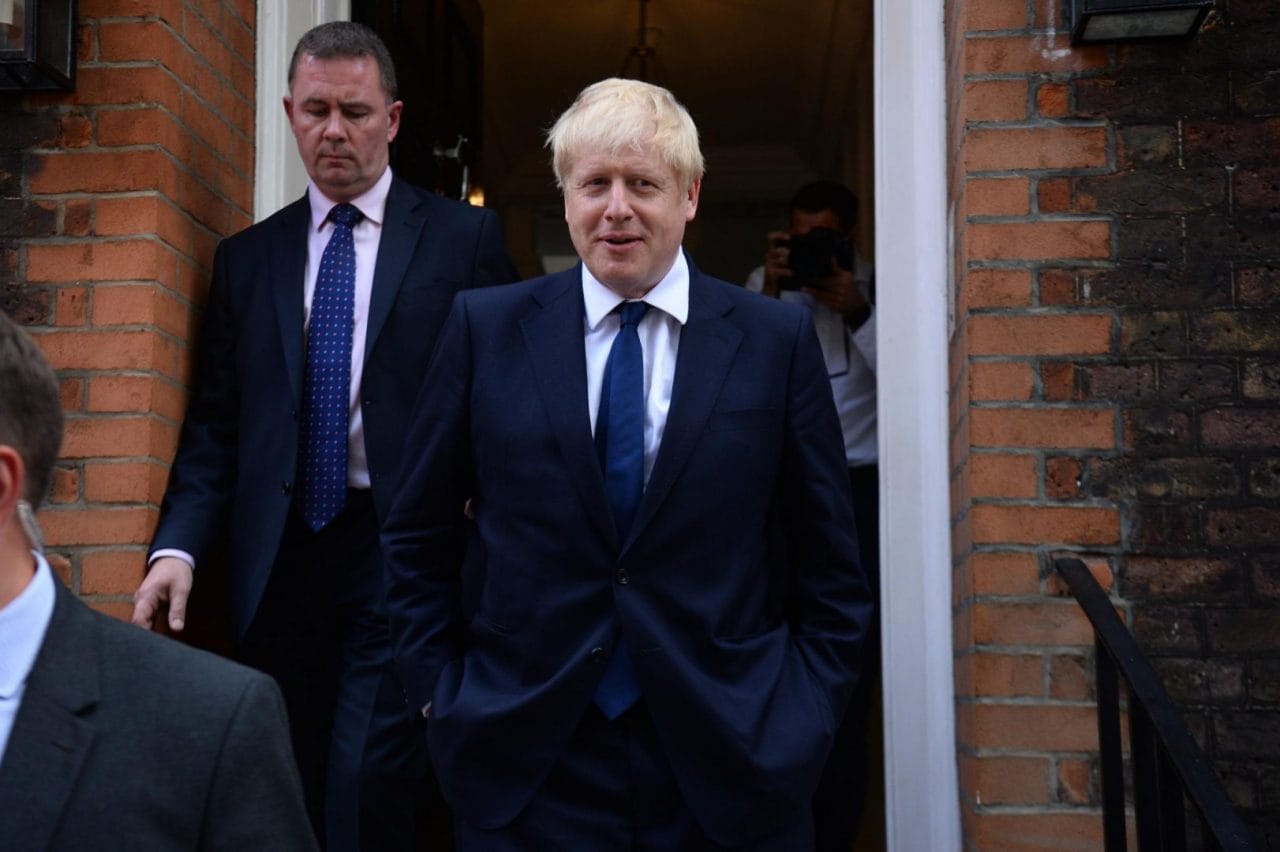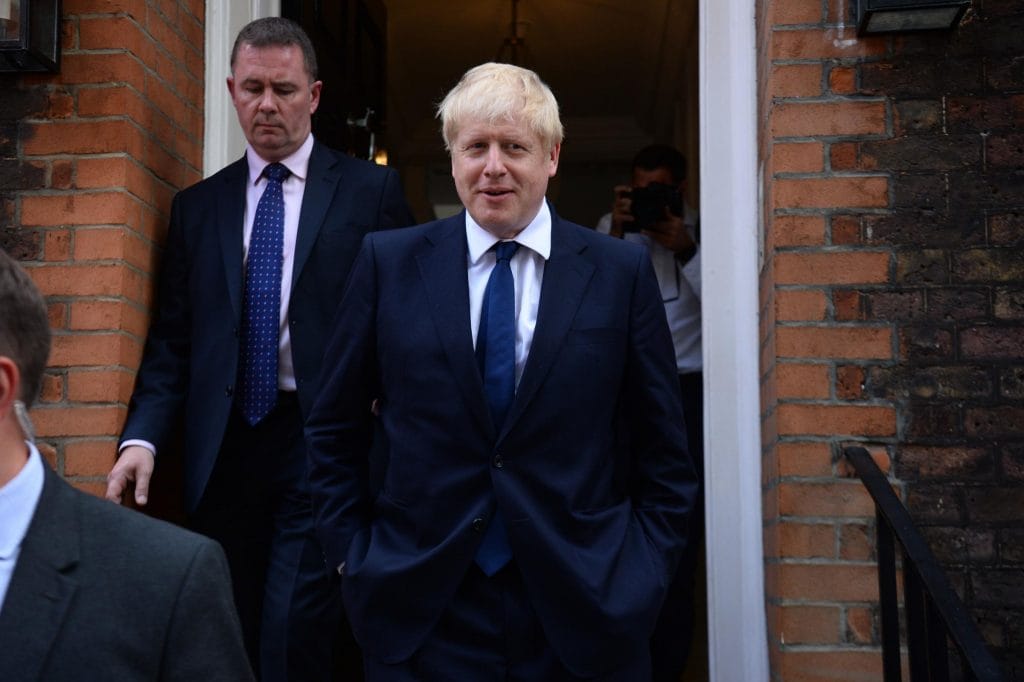
By Mark Haefele, John Wraith and Dean Turner, Global Chief Investment Officer GWM, UBS AG
Boris Johnson, a leading proponent of Brexit in the 2016 referendum, will take over as the next UK prime minister. Mr. Johnson has pledged that the UK will leave the EU as scheduled on 31 October, with or without a deal. Johnson’s win over rival Jeremy Hunt, the foreign secretary, was widely expected. As a result, the market reaction was muted with sterling, 10year yields, and the FTSE 100 all little changed from levels prior to the announcement. But sterling has been the weakest G10 currency over the past three months versus the US dollar on rising concern over the possibility of a no-deal Brexit.
What comes next?
The market is now pricing a roughly 50% chance of a no-deal Brexit, based on our estimates. Concerns about a no-deal exit have increased as the new PM has repeatedly promised to leave the EU without a deal if a satisfactory agreement can’t be reached. In addition, EU officials – including newly elected Commission President Ursula von der Leyen – have indicated that there is no room for compromise on major sticking points, including the Northern Ireland backstop. The incoming EU Commission president has also indicated she wouldn’t stand in the way of an extension of Brexit day.
We do not believe it is possible to forecast the ultimate outcome of the Brexit process, and we don’t attempt to do so. But we believe that in the shortterm the market is overstating the risk of a no-deal Brexit.
Even if Prime Minister Johnson is willing to countenance a no-deal exit, he faces various barriers. The Conservative Party currently lacks a majority in parliament to push through its preferred option. The party itself is not united, with several leading lawmakers – such as Dominic Grieve, the former attorney general – opposed to a no-deal Brexit. Mr. Grieve has said he would be willing to vote against the government in a vote of no-confidence if Mr. Johnson pushes for a no-deal Brexit. Other Conservative MPs have also suggested as much, and more are likely to follow. Few members of the opposition Labour Party could be expected to support a no-deal Brexit either, and the party leadership is now committed to a new referendum.
In short, the prime minister is changing, but the composition of the House of Commons and its speaker, John Bercow, are not. The majority of British MPs have, and continue to, express their opposition to leaving the EU without a deal. Moreover, the speaker of the Commons has a shown a willingness to be flexible with parliamentary procedure in order to let MPs have their say on this topic. Thus, notwithstanding Mr. Johnson’s claimed desire to leave the EU on the 31 October “deal or no-deal”, we believe that MPs with the help of the speaker will prevent him from doing so. Should Mr. Johnson attempt to pursue a “no deal”, we believe that this would via one route or another, lead to a general election.
As such, while a no-deal Brexit remains possible over the longer term, our view is that the most likely path in the short term is for a further extension to the UK’s 31 October exit day, either due to a change in stance from PM Johnson, or in the case of a general election.
What does this means for investors?
As mentioned above, we do not believe investors should take strong positions based on forecasts of the final outcome of Brexit. But the current market pricing, which exaggerates the chances of a no-deal Brexit in the short term, creates an opportunity. At USD 1.24 the pound is now significantly below our fair value estimate of 1.59. Much of this is due to uncertainty surrounding Brexit. But notwithstanding the recent softening in economic data, the UK economy has been holding up and inflation is at the Bank of England’s target. Assuming the market adjusts to what we believe is a more realistic scenario for delay over the short term, we expect sterling to rally. As a result, we overweight the British pound versus the US dollar. For the longer term, we believe sterling would fall to USD 1.15 in the event of a no-deal Brexit, trend higher towards USD 1.35 in 12 months in the event of a continued delay, and rise toward USD 1.45 in the event that proceedings start to point to the UK remaining in the EU.
For stocks, we believe the long-term political uncertainty created by Brexit makes the UK relatively unattractive. We overweight EM dollar-denominated sovereign debt versus UK equities. UK stocks look increasingly attractively valued, with a 4.8% dividend yield. But while the UK was formerly seen as a conservative, lower risk market, prolonged Brexit uncertainties could lead to rising risk premiums. Returns in local currency terms could also be limited if the pound rallies. Emerging market US dollar-denominated sovereign bonds have a more favorable longer-term risk-return outlook, in our view, with spreads of around 335bps over US Treasuries.
Tradersdna is a leading digital and social media platform for traders and investors. Tradersdna offers premiere resources for trading and investing education, digital resources for personal finance, market analysis and free trading guides. More about TradersDNA Features: What Does It Take to Become an Aggressive Trader? | Everything You Need to Know About White Label Trading Software | Advantages of Automated Forex Trading









